Sogen Sake Brewery: Taking Pride In Brewing The Local Sake Of Noto

With a rich history of brewing quality sake in the Noto Peninsula, Sogen Sake Brewery is closely connected to the local area. See for yourself and experience a day of adventure with a brewery tour and tasting, and a ride on the Notoro express!
With a mildly sweet and subtle taste, Sogen junmai-shu pairs quite nicely with sashimi. A chilled glass refreshes the palate and its soft touch complements the light crisp acidity and salt taste of sashimi dipped in soy sauce.
Sogen Sake Brewery located in the Noto Peninsula, Ishikawa prefecture, has a long and rich history of brewing quality sake. Its sake is as much a part of the regional culture, as it's been influenced in turn by the region itself.
Noto Peninsula, Famous For Its Rice Cultures And Seafood

The lush idyllic environs of Noto Peninsula are home to 17 sake breweries. Of this total, 11 breweries are located in Oku-Noto, which is in the upper region. The number of breweries is attributed in part to Noto's climate which is considered ideal for traditional sake brewing.
Good quality rice and clean water are the essential for brewing sake, and Noto happens to be one of the regions with the best quality rice and water in the country.
Sogen Sake Brewery - Committed to Providing the Highest Quality Sake

Sogen Sake Brewery was established in 1768 and is the oldest brewery in Noto. It's believed that Sogen is where the Noto toji (brewmasters) originated, and their techniques disseminating from there would lead to the appearance of the famous Noto Toji School.
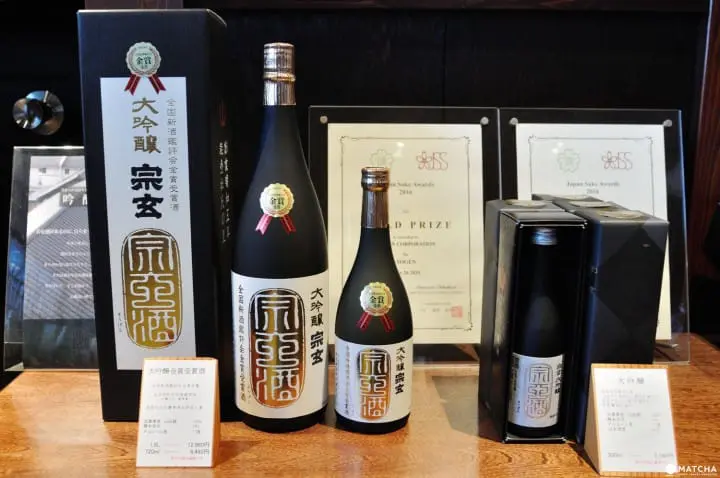
A toji is the brewmaster of a sake brewery, and is entrusted with ensuring the quality and determining the final taste of the sake. In particular the quality of Sogen's Ginjo-shu is renowned, and has been recognized with awards on the national stage over a successive number of years.
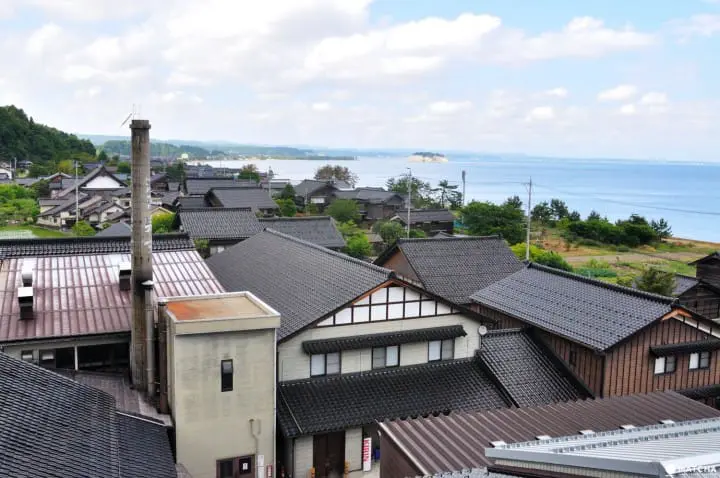
Sogen has specialized in the type of sake known as ji-zake. The word ji-zake translates to local sake and refers to the quality artisanal sake made by local and smaller breweries. This contrasts with the sake brewed on a mass scale with a resulting less desirable homogeneity in flavor and inferior quality.

The ji-zake has a close connection to the region where it was brewed, as the local natural conditions greatly influence its taste. The soft waters used for producing the sake, as much as the rich seafood to be savored together, are equally important in determining the final taste of the ji-zake.
See How Their Sake Is Made! The Sogen Brewery Tours
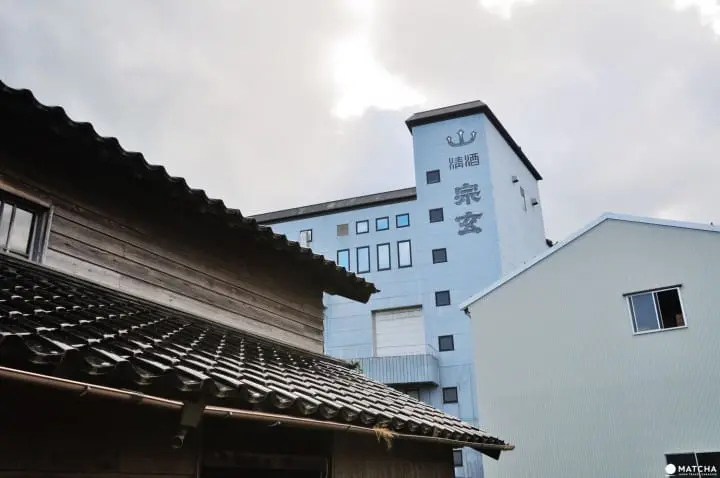
By taking part in a brewery tour at Sogen, you can see with your own eyes how their sake is made, and the consideration they pay to each stage of the brewing process.
Brewery tours are offered throughout the year, except for the brewing season (early winter to spring) when the tours are not available. The sake shop is open for tastings year round though.
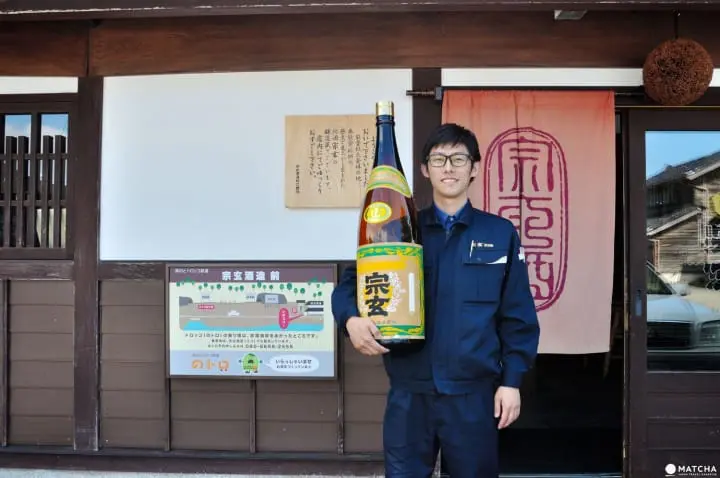
I met with Hoshitaro Asada on the day of my visit, who leads Sogen's sales activities. He guided me on a tour of the brewery. As I listened and watched over the course of the tour, his passion for sake was evident. Mr. Asada is intent on introducing others to the goodness and joy of quality sake and endeavors to do so, both nationally and abroad.
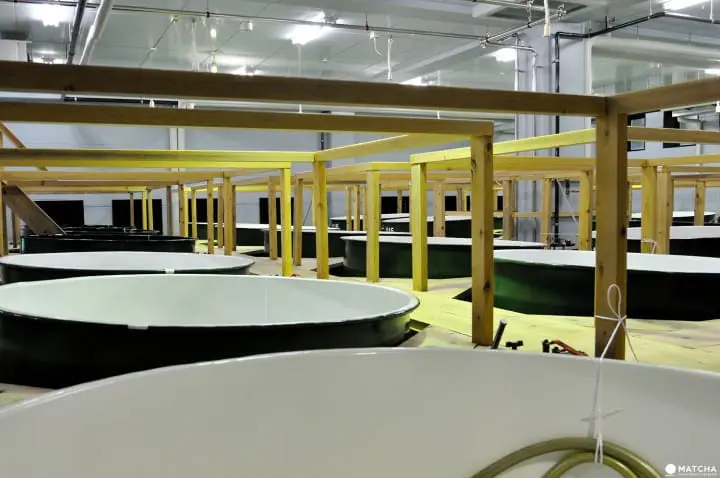
During the tour, the visitiors can see the various stages of the brewing process.
The brewing stages are separated sequentially by floor, starting at the top where the rice is prepared. Koji, the essential fermenting agent, is combined with rice, water, and shubo (seed mash), resulting in what is called moromi.
The moromi is filled into one-ton tanks and left to mature for a period. One-ton tanks are small by standards and attest to Sogen's attention to quality, as the smaller tanks ensure increased control of the quality of the final product.
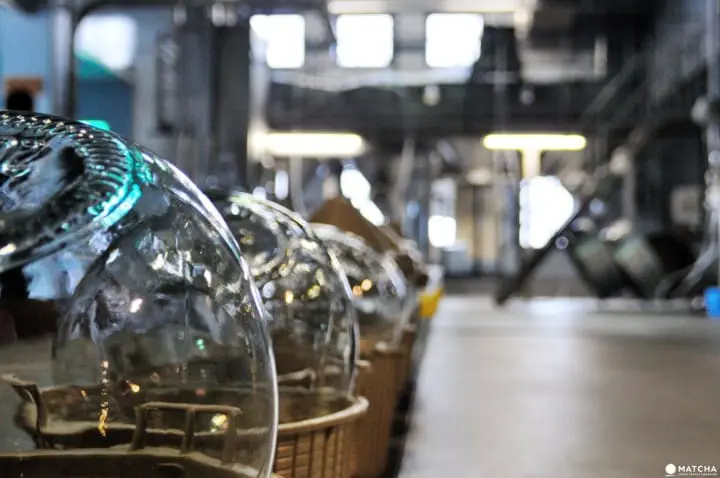
The mastery and experience of the toji, and the combined skills of the kurabito (brewery workers) are essential in all the stages of brewing from start to finish. It's ultimately upon them that the quality and style of Sogen sake depends.
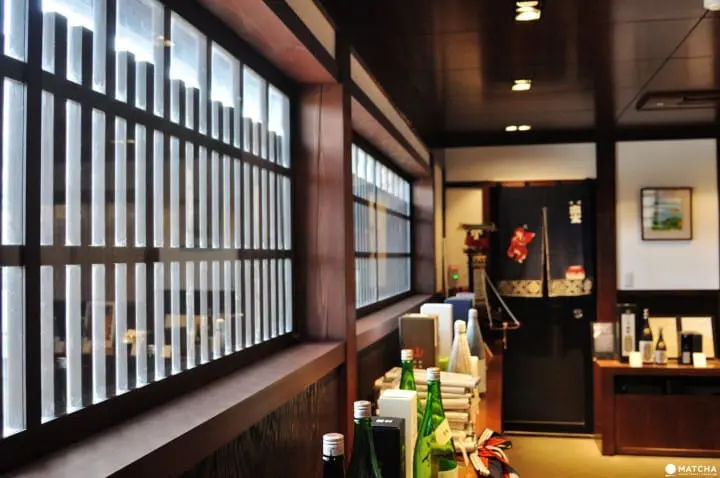
A sake tasting is offered following the brewery tour, and visitors are welcome to browse Sogen's shop. There's no better way to appreciate all that's been seen and learned, than to indulge in a delightful sake tasting.
Contributing to Regional Revitalization
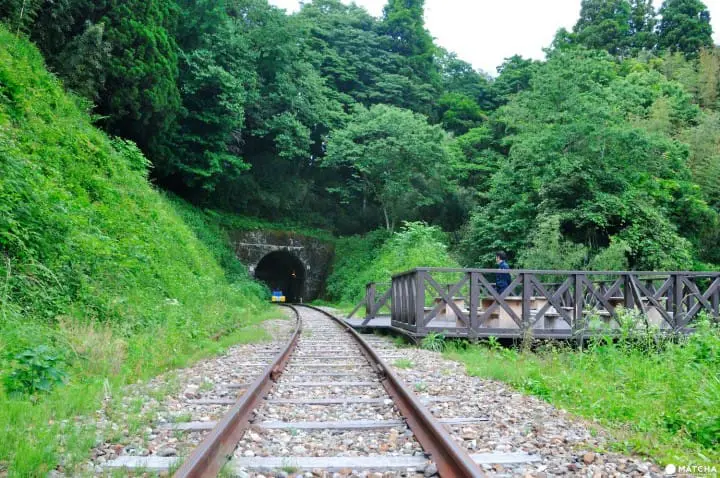
Like many other country regions of Japan, Oku-Noto struggles with a dwindling population and economy. One consequence was the closing in 2005 of the Noto Line which connected the lower and upper portions of Noto.
In 2013, Sogen acquired and restored a portion of the Noto Line rail and tunnel. It was part of a regional initiative, the "Oku-Noto Area Vitalization Project", whose goal was to reinvigorate the local communities.
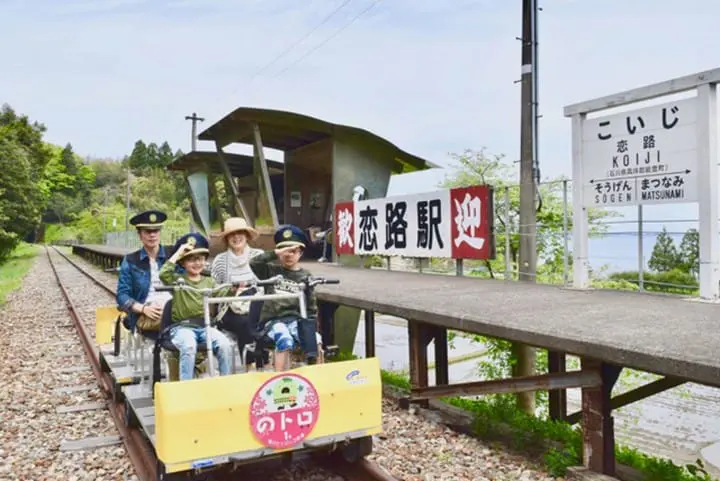
Picture courtesy of Sogen Sake Brewery
When the restoration was completed, Sogen launched Notoro, a self pedaled trolley. It received the coveted Good Design Award (2013) which acknowledged its contribution to enriching society and its value as a design concept.
Visitors are welcome to enjoy a ride on this trolley and the scenic views it offers along the coastline. Reservations are required in advance. (For reservations please send an e-mail to the following address: info@sougen-shuzou.com)
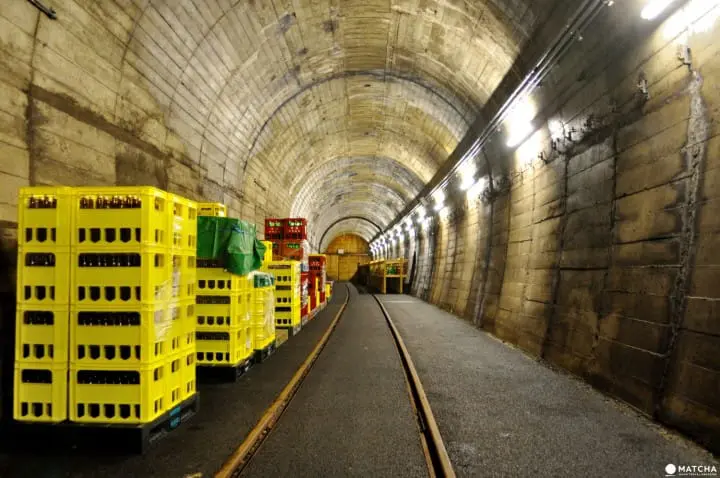
The tunnel section of the line was also restored and is now used exclusively for sake storage. The natural ambient temperature of 12 Celsius is ideal for aging, and gives the sake a more mellow and deeper taste. It's similar in experience to a visit to a cave wine cellar, with the notable exception of the train line running through it!
* Unfortunately, the tunnel is not accessible to the public.
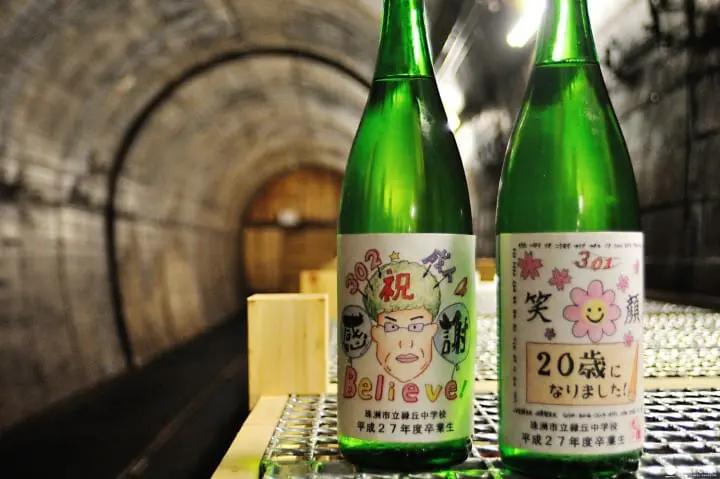
In a small alcove set to the side were two unmistakably different bottles of sake with outright original label designs suggesting young hands and minds at work. In fact, these are Five-Year Time Capsules, the fruits of a project conceived by Mr. Asada.

Picture courtesy of Sogen Sake Brewery
Middle school students from the local area plant rice in the fields, and return again months later for harvest. Sogen brews the rice and the students design the labels for the bottles, which are then stored in the tunnel cellar.
On graduating from high school five years later the students return together to open the time capsules. They share a celebratory toast to their graduation with sake!
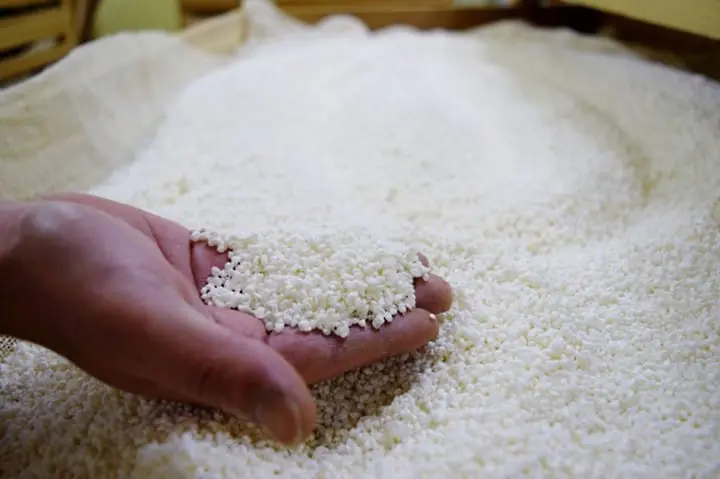
Picture courtesy of Sogen Sake Brewery
In an age where so much of what sustains us comes from afar, endeavors such as these are inspiring. The idea of connecting younger generations to the land through sake is brilliant, as it introduces the world of quality sake to future generations.
In Conclusion
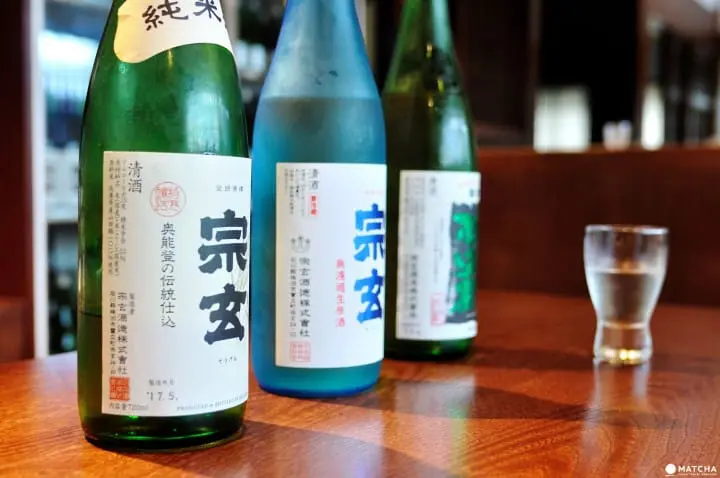
Sogen Sake Brewery offers a blend of rich tradition and history at its brewery located in Noto. It's upon this and coupled with a conviction that Sogen engages communities both near and far, in spreading the goodness and joy of Japanese sake.
Born in 1959. Currently working as a freelance translator, after 21 years in various companies.





































![[Niigata] Skiing and snowboarding are just not enough! Fun snow spots for parents and children](https://resources.matcha-jp.com/resize/720x2000/2026/01/29-256901.webp)
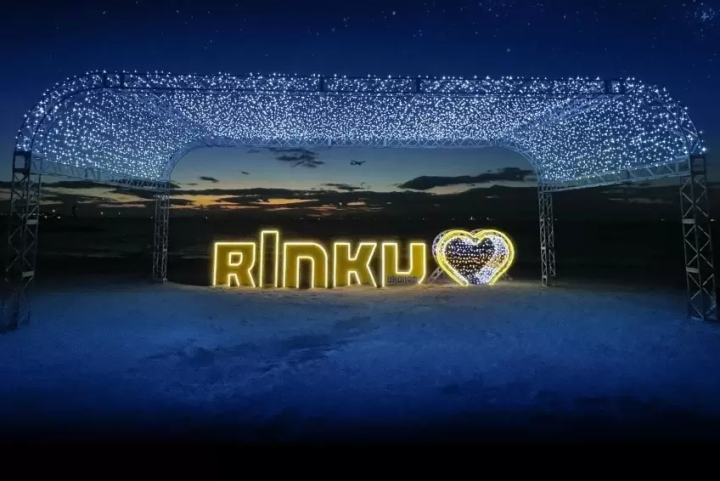
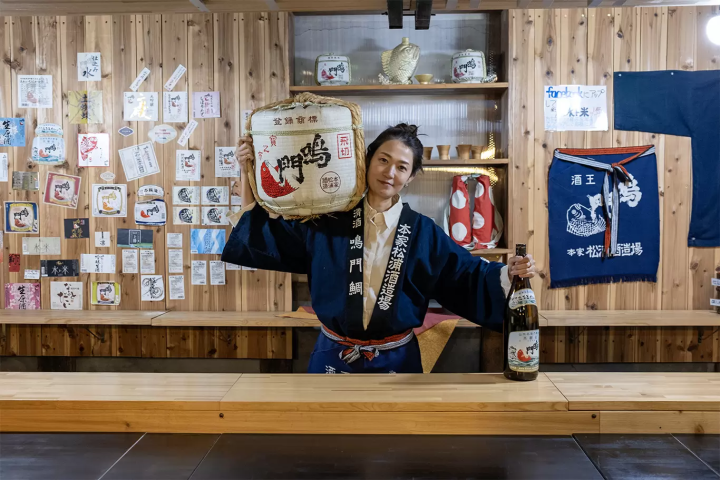
![[Gunma, Nakanojo] Experience Japanese history in a wooden school building from the Meiji era](https://resources.matcha-jp.com/resize/720x2000/2025/12/25-254022.webp)
